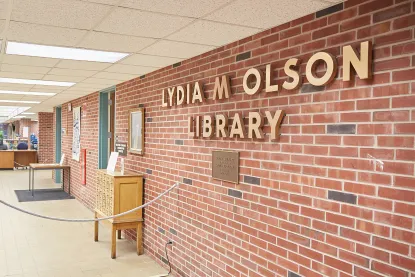What is Seasonal Affective Disorder?
Seasonal Affective Disorder, or SAD, is a type of depression that affects a person during the same season each year- usually beginning in the late summer to early winter months and ending in the spring. In rare cases, SAD has a reverse seasonal pattern, with depression occurring only during the summer months. Anyone can get SAD, but it is more common in:
- People who live in areas where winter days are very short or there are big changes in the amount of daylight in different seasons
- Women
- People between the ages of 15 and 55
- People who have a close relative with SAD
What causes SAD?
SAD may be caused by the shortened hours of daylight during the autumn and winter, which can affect the levels of serotonin and melatonin in the brain. These chemicals function to lift your mood and regulate your sleep patterns. People with SAD are thought to respond to the decrease in daylight by producing too little or too much of these chemicals.
What are some signs of SAD?
Symptoms usually come and go around the same time each year. For most people with SAD, symptoms start anytime from August to October and last until April or May. If you have SAD, you may:
- Feel sad, grumpy, moody, or anxious for most of the day
- Lose interest in your usual activities
- Eat more and tend to crave carbohydrates, such as bread or pasta
- Gain weight
- Sleep more, but still feel drowsy during the day
- Be unusually irritable and have difficulty getting along with others
- Have a heavy feeling in your arms and legs
- In extreme cases, have suicidal thoughts
How is SAD treated?
- Eat a well-balanced diet and exercise daily
- Follow a consistent sleep routine
- Practice relaxation and stress management
- Plan a daily outdoor activity
- Use a sunlight-simulating electronic device (light therapy)
- Seek professional counseling
- Take nutritional and dietary supplements proven to help with depression (always check with your doctor first) Take antidepressant medication when prescribed
- Work in bright environments and sit near windows when possible
- Use mind-body therapies including acupuncture, yoga, meditation, and massage therapy when needed
Image

Light Therapy at NMU
Light therapy Lamps are used to treat/prevent symptoms of Seasonal Affective Disorder (SAD) - a type of depression related to seasonal changes caused by a lack of sunlight. We have multiple sunlamps around campus for use by students throughout the year.
There are several locations around campus that have light therapy lights:
Harden Hall: Third floor in front of the stairs, and on the opposite (back) wall.
Weston Hall: Second floor of the atrium, in the corner.
Health Center: In the waiting area by the window.
Residence Halls: Located in lobby and common areas.
